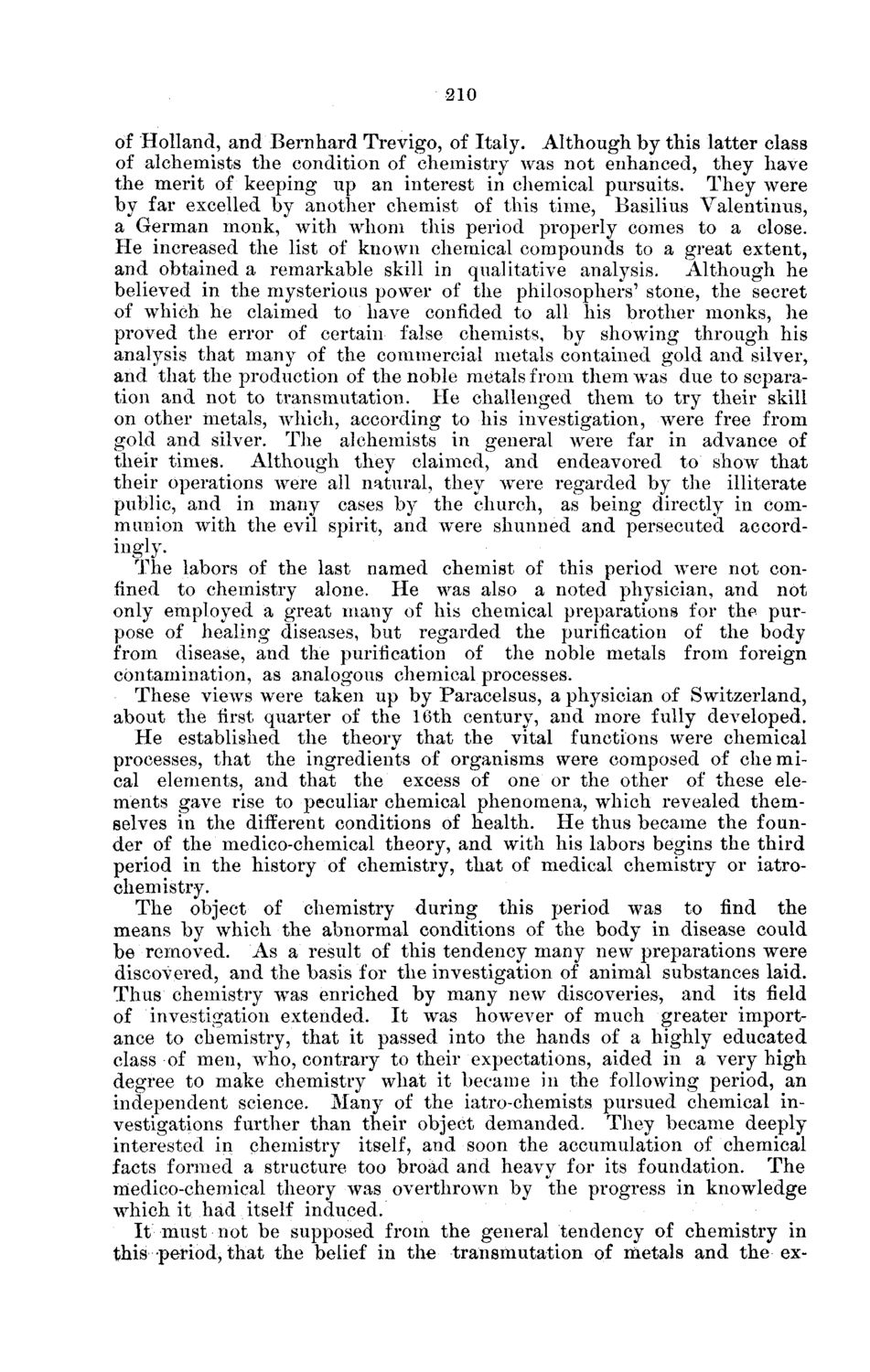| |
| |
Caption: Board of Trustees Minutes - 1878
This is a reduced-resolution page image for fast online browsing.

EXTRACTED TEXT FROM PAGE:
210 of Holland, and Bernhard Trevigo, of Italy. Although by this latter class of alchemists the condition of chemistry was not enhanced, they have the merit of keeping up an interest in chemical pursuits. T h e y were by far excelled by another chemist of this time, Basilius Valentinus, a German monk, with whom this period properly comes to a close. He increased the list of known chemical compounds to a great extent, and obtained a remarkable skill in qualitative analysis. Although he believed in the mysterious power of the philosophers' stone, the secret of which he claimed to have confided to all his brother monks, he proved the error of certain false chemists, by showing through his analysis that many of the commercial metals contained gold and silver, and that the production of the noble metals from them was due to separation and not to transmutation. H e challenged them to try their skill on other metals, which, according to his investigation, were free from gold and silver. The alchemists in general were far in advance of their times. Although they claimed, and endeavored to show that their operations were all natural, they were regarded by the illiterate public, and in many cases by the church, as being directly in communion with the evil spirit, and w^ere shunned and persecuted accordingly. The labors of the last named chemist of this period were not confined to chemistry alone. He was also a noted physician, and not only employed a great many of his chemical preparations for the purpose of healing diseases, but regarded the purification of the body from disease, and the purification of the noble metals from foreign contamination, as analogous chemical processes. These views were taken up by Paracelsus, a physician of Switzerland, about the first quarter of the 16th century, and more fully developed. He established the theory that the vital functions were chemical processes, that the ingredients of organisms were composed of chemical elements, and that the excess of one or the other of these elements gave rise to peculiar chemical phenomena, which revealed themselves in the different conditions of health. He thus became the founder of the medico-chemical theory, and with his labors begins the third period in the history of chemistry, that of medical chemistry or iatrochemistry. The object of chemistry during this period was to find the means by which the abnormal conditions of the body in disease could be removed. As a result of this tendency many new preparations were discovered, and the basis for the investigation of animal substances laid. Thus chemistry wTas enriched by many new discoveries, and its field of investigation extended. It was however of much greater importance to chemistry, that it passed into the hands of a highly educated class of men, who, contrary to their expectations, aided in a very high degree to make chemistry what it became in the following period, an independent science. Many of the iatro-chemists pursued chemical investigations further than their object demanded. They became deeply interested in chemistry itself, and soon the accumulation of chemical facts formed a structure too broad and heavy for its foundation. T h e medico-chemical theory was overthrown by the progress in knowledge which it had itself induced. I t must not be supposed from the general tendency of chemistry in this period, that the belief in the transmutation of metals and the ex-
| |